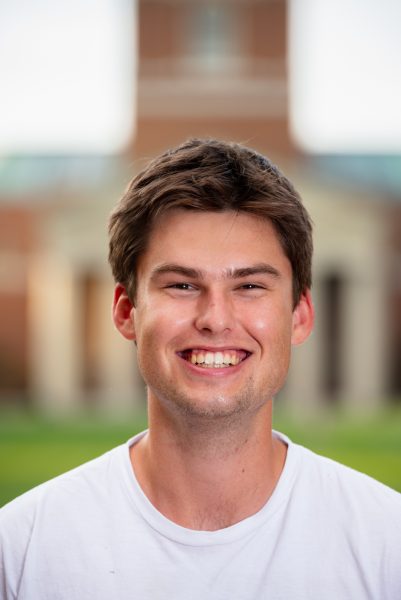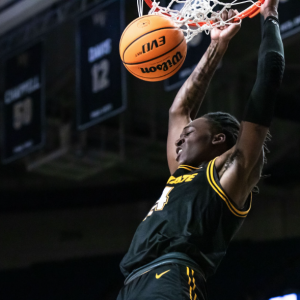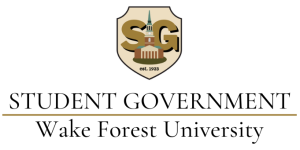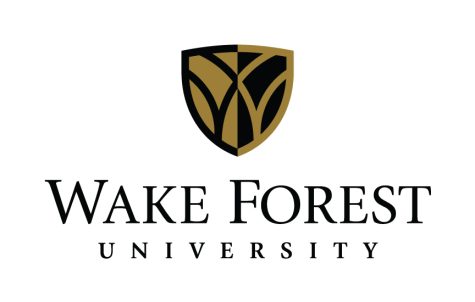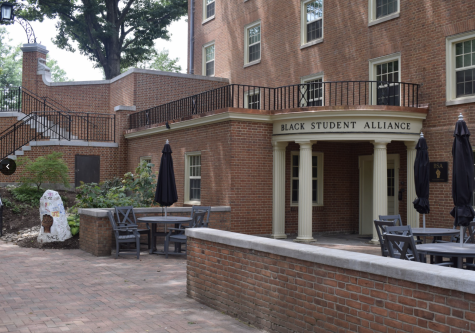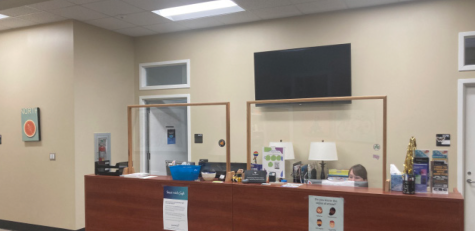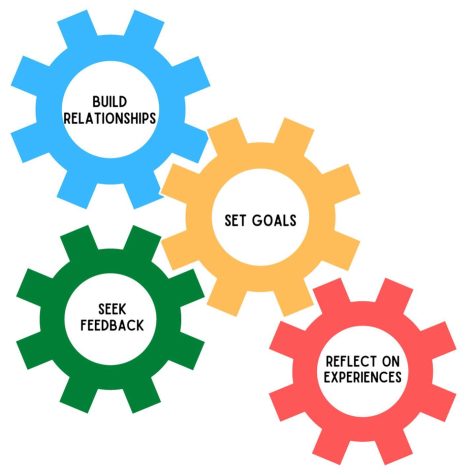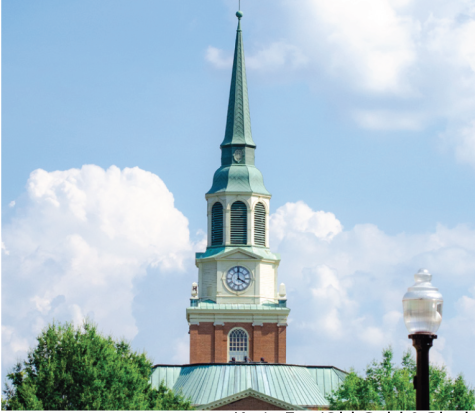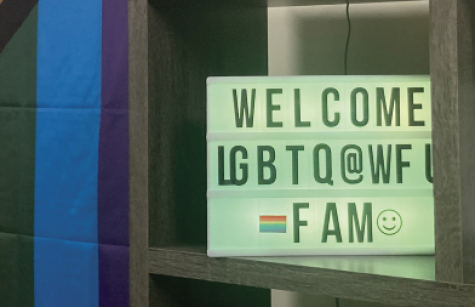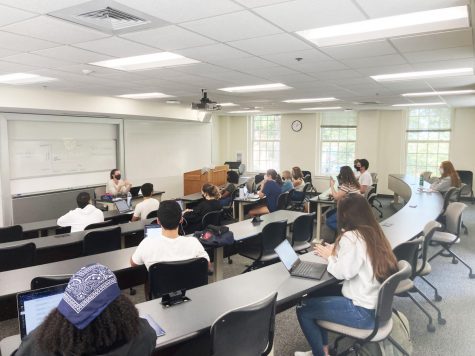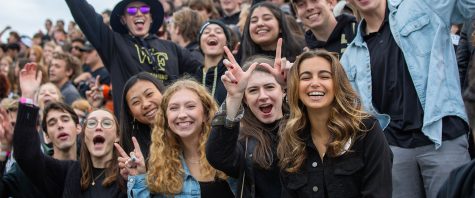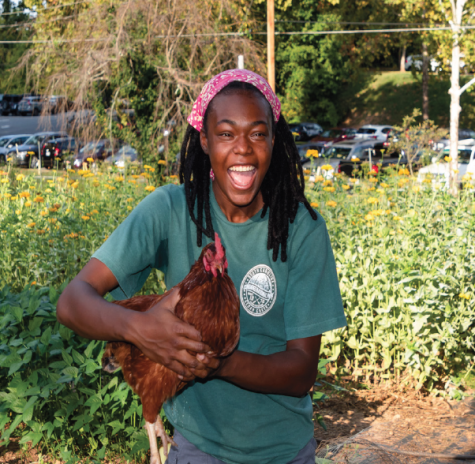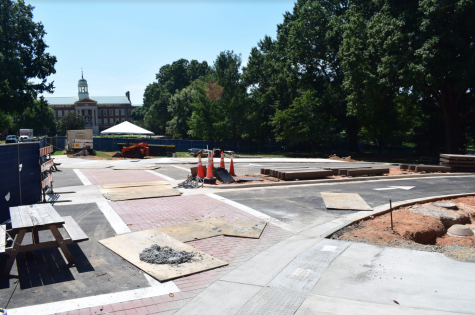Cultural Affinity Group Roundtable
Learn more about Wake Forest’s many affinity organizations
August 18, 2022
There is only one thing that every student on Wake Forest’s campus would like to have more than a reading-optional, no-homework, grade-yourself divisional credit, and that is to be accepted. For many of you, this is the first time you will be living on your own, tasked to face the daunting, exciting and even mundane challenges life has to offer by yourself. You may not know many people yet, however, living on your own does not have to mean being on your own.
Creating a circle of support with friends, professors, and classmates will be the best way to remedy any fears or concerns about this next stage of life. Take the courses you find interesting, show up to events that sound fun, and simply be yourself, and you will create a community so strong, so quickly.
I understand that this can be nerve-wracking, especially if you believe you can’t truly be yourself. Wake Forest is a primarily-white, primarily-Christian, primarily-American institution, and that fact isn’t subtle either. Seeing these reminders can inhibit so many amazing discoveries, be it self-discoveries, academic or career discoveries, or social discoveries. The cultural and religious affinity organizations on Wake Forest’s campus provide non-white, non-Christian, non-American students a place that celebrates who they are.
For this year’s Freshman Tabloid, we hosted a discussion that featured the student leaders of various affinity groups in which they shared stories, spoke about the benefits their respective organizations provided and offered advice for the Class of 2026. Below are excerpts from that discussion, but do not think this is the whole thing. To listen to the roundtable discussion in its entirety, listen to the recorded version below or watch the YouTube video above.
Cooper Sullivan, Multimedia Managing Editor Many of you first got started with your organization fairly early on, whether it was right after you arrived on campus or even beforehand. How have you been trying to drive involvement amongst the arriving freshmen?
Aman Khemlani, president of the Hindu Students Association: We, for the lack of a better term, have been stalking the Wake Forest Class of 2026 social media accounts. We are active on social media in terms of interacting and have already started sending out emails to people that we think could be interested and want to join. We have made it clear that while we are a religious organization — personally, I am not super religious — we are also just a place to just to connect with people you might have some connection to because you follow similar religious beliefs. We are planning the engagement fair and we have also been working closely with Student Government in order to get HSA’s name out there.
Janeel Black, president of the Black Student Alliance: We have also done similar things online with Wake Forest 2026 pages, but also just making sure that our presence is known as an executive board. Letting people know who is on the executive board and ensuring that the events planned would be events that members want to go to, and making them exciting that people continue to come out. We are catering to what we would have wanted as freshmen and hoping that works.
Aksh Patel, vice president of the South Asian Students Association: SASA has two main events aside from the involvement fair; the first one is a freshman meet-and-greet. We had a freshmen meet-and-great last year, and it didn’t work out as well as we thought it would, but we are going to try to work on it differently this year. Soon after, we have a welcome-back dinner for all of the SASA members in Benson. We usually have a room booked and get food catered and that’s so all the current members can meet the incoming members and they can socialize.
Fawaz Shahid, president of the Muslim Students Association: The MSA has done very similar things, using Instagram and reaching out, to see who has connections to incoming students. We also do a welcome lunch within the first few weeks, which we are getting planned right now. We will pick a day, get food catered from somewhere local and spread the word through our Instagram and emails.
One thing I want to add about MSA is that a lot of the incoming freshmen may be a little afraid to join the organization because they feel like they are going to be judged about their religiosity or where they fall onto the spectrum. In my head, I consider the MSA to be more of a cultural organization than a religious organization because we have space for everyone to be there.
Estefania Narvaez, president of the Organization of Latin American Students: OLAS has very similar activities to what you all have mentioned already. We are planning to do an FDOC event, we are planning to do our paletas — not just for OLAS members, but to everyone else in the Wake Forest community. One of the favorite things we do every year with freshmen is the OLAS mentorship program, which eases the transition of freshmen and students of color into Wake Forest. We also have Latin Heritage Month coming up, which is huge not just for freshmen but for everyone else involved in OLAS.
Sullivan: One of the goals of a campus organization, regardless of which organization, is to create a community that goes further outside just the planned events. Lounges and text chats are all great examples of these. How has the sense of community you have found within your respective organizations impacted your Wake Forest experience?
Narvaez: It’s kind of like a safe space. I feel like every time an OLAS member goes into the lounge, they feel like they can be themselves. Not that they go out there and put up a different picture of themselves, but it helps with their identity and they feel some kind of support for who they want to be or the person or identity they want to portray. Our lounge is located in Luter, right by all the freshmen dorms, so I would go there all the time and do homework and I would always see a friend. Having that support system and close community really helps you get through difficult times. To me, it was incredibly hard to transition into college because I was the first in my family to go to college in the United States, and I was the first person in my family to speak English because I moved here when I was 14. Going into college I had so many different expectations and I was so scared. But knowing that I had somebody that looked like me and had a similar background to me definitely helped with that transition.
Black: Having a lounge is like having a home away from home. At any point during the week or school year, you can find somebody in the lounge doing homework or just relaxing. I think that really helps with building community. Nine times out of ten you won’t be alone in the lounge. You’re always making a friend or catching up with a friend. But at the end of the day, the lounge is just a place for people to exist and relax, because walking around campus can get exhausting both physically and mentally. Being able to walk into the lounge and realizing I don’t have to put up a front or pretend I’m somebody that I’m not, I can just relax, do what I need to do, recharge so I can go outside and be the best person I can be here at Wake Forest.
Khemlani: Just wanting to add from an organization that does not have a lounge, it can sometimes be challenging to have that bonding or sense of community outside of an event because you think in order to meet these people I have to go to this event. Of course, you can become friends outside of that circle but it’s so much harder when you don’t have that lounge where you can pop in and see someone randomly. Last year, we would hang out in Deacon Place or Deacon Station, but even that can be a challenge for someone who doesn’t have a car.
I know SASA doesn’t have a lounge, either, so these are struggles we both share in being able to form that community outside of events we plan through student engagement but one good thing is that there has been a good sense of bonding at least within our members so far where we are able to hang outside those circles. But for future freshmen coming in it would be harder for that aspect, unlike BSA, MSA or OLAS, who do have a lounge.
Sullivan: What is one piece of advice you would give to the incoming freshmen class?
Khemlani: Join organizations, try new things and try talking to as many people as you can. It’s your freshman year, so have fun because after that it’s work, work, work.
Patel: Academically, getting into a routine and learning time management is crucial. Socially, I’d say meet everyone and anyone. You will meet people that you can rely on academically and can study together, and then there are people you meet that you can go out with and have fun with. Balancing that is really important.
Black: I would recommend not being afraid to ask, academically and personally, because we have all been freshmen before. Don’t be afraid to ask those questions that you want to know an answer to because I guarantee you will get an answer that you weren’t expecting. It also gives you the chance to get to know new people, and we are a lot nicer than we appear to be.
Shahid: Be open-minded. In the first few weeks, explore different organizations and different people that you want to be around so that you are able to get involved and have a good time while you are here.
Narvaez: Sometimes we find ourselves trying to fit in everything at once and trying to reach the top of the world so quickly that we lose ourselves. It is super important to pace yourselves. It affects your physical and mental health so it is important that as you transition into college that you prioritize your mental health and to talk to people to help you if you are struggling. Don’t ever lose yourself in trying to fit in.


